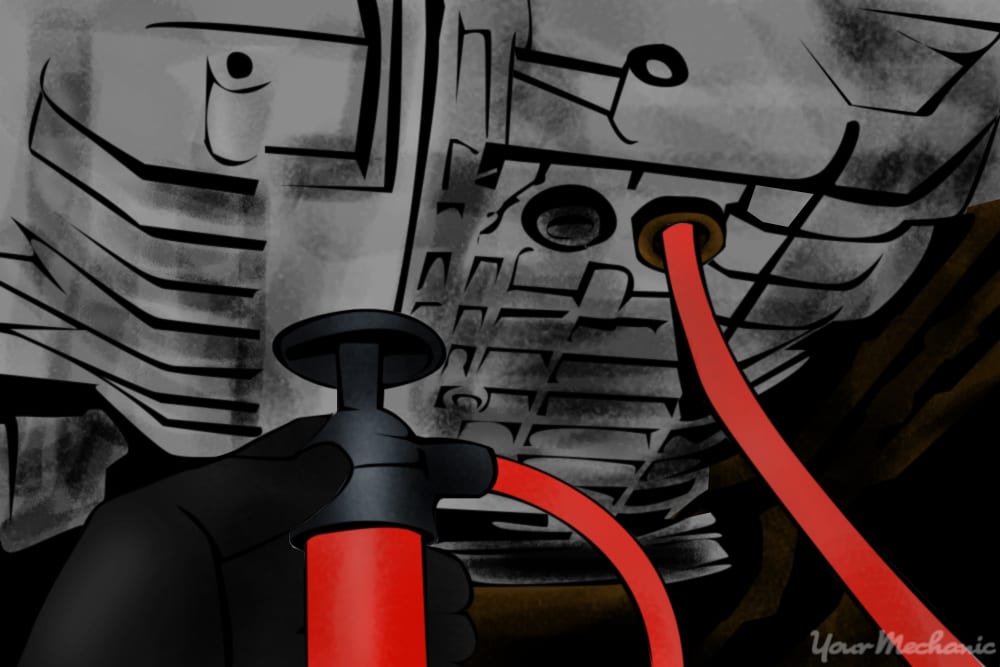

Routine maintenance is the key to longevity for any machine. This statement of fact is especially vital for cars, trucks, and SUVs that navigate the highways and byways across the United States daily. While most of us are pretty good about having our engine oil changed, radiators flushed, and tires rotated, one routine service often overlooked is the transmission flush. In fact, it’s common for many car owners to ask whether a transmission flush is necessary or just a good idea.
Having a transmission flushed every 30,000 to 50,000 miles is crucial, especially if you drive a car with an automatic transmission. Let’s take a look at the top 4 reasons why having your automatic transmission fluid flushed as recommended is indeed necessary.
How Automatic Transmission Fluid Works
There is often some confusion as to how an automatic transmission works. Simply put, an automatic transmission is a hydraulic system that relies on a consistent flow of transmission fluid levels to supply hydraulic pressure in order to operate. Transmission fluid is different than engine oil — it is designed with a specific viscosity and a combination of additives that help reduce expansion as the fluid is heated. This keeps the vehicle's transmission fluid consistent, which permits it to flow efficiently through each hydraulic line inside the transmission. Over time and with continued use, the additives will begin to wear out, which causes the fluid to thin and become more susceptible to expansion due to heat. Dirty transmission fluid needs to be replaced with new fluid for ideal performance.
Why is a Transmission Flush Required?
A transmission flush is similar to other car fluid changes. When you or a mechanic perform an oil change, it’s a rather simple process. They’ll remove the oil pan bolt, remove the oil filter, and let the old fluid drain until it stops flowing. However, it doesn’t fully remove all of the engine oil. Inside the engine block and cylinder heads are a series of galleys that keep a small portion of oil to lubricate moving parts until the new oil is circulated through the engine. An automatic transmission’s fluid is kept inside the hydraulic lines, so it needs to be ‘flushed’ or pushed through the lines to drain effectively. This also serves a secondary purpose. The transmission flush also pushes debris and other small particles that develop from the transmission filter’s worn out fibers.
Here are 4 reasons why this process is so important for those with automatic transmissions:
It extends the transmission lifespan: If the transmission’s internal hydraulic lines are clogged, it can cause inner seals to break, which creates internal leaks and can lead to complete transmission failure. By having the fluid flushed and filters replaced every 30,000 to 50,000 miles, you significantly reduce the potential of damage and can extend its lifespan.
It improves smooth shifting: When transmission fluid is replaced and the fluid is flushed, it improves the efficient flow of transmission fluid throughout the system. The end result is that the transmission will shift smoother.
It is vital to protect warranties: Most new cars, trucks, and SUVs come with a powertrain warranty — which protects the engine, transmission and drive-system components. However, if those systems are not maintained as recommended, it can void most extended warranties and cost you a significant amount of money if you need to replace them.
It can improve fuel economy: A smooth-shifting transmission is also critical for the efficient operation of your engine. If the transmission slips or shifts higher than the engine is set, it can and often will burn more fuel inside the engine than it should. A transmission fluid change can contribute to optimal fuel mileage.
You’ll notice in the information above that we haven’t mentioned transmission flushes for CVT or manual transmissions. These units operate differently and have their own recommended service intervals. The best way to clarify what you should have done for your vehicle is to contact a professional mechanic, your automotive dealership or investigate your owner’s manual for a transmission service maintenance schedule. This will tell you when all the recommended services are required and suggested to keep your vehicle running strong and protect those warranties.



